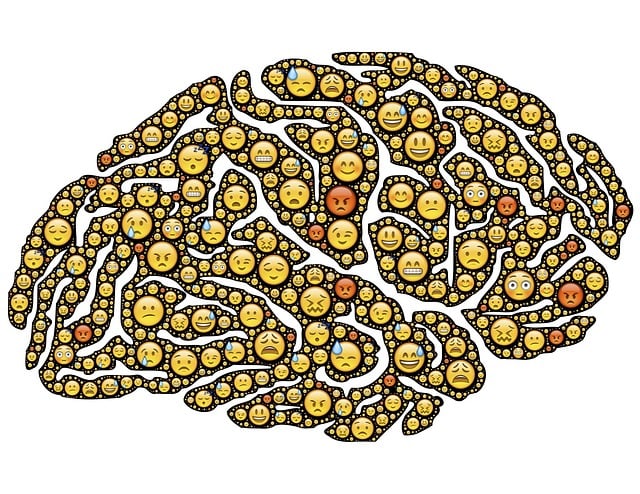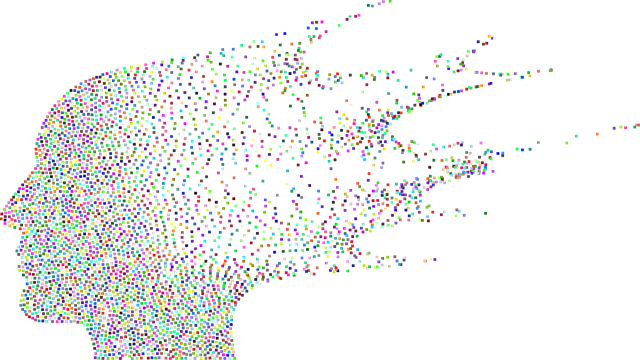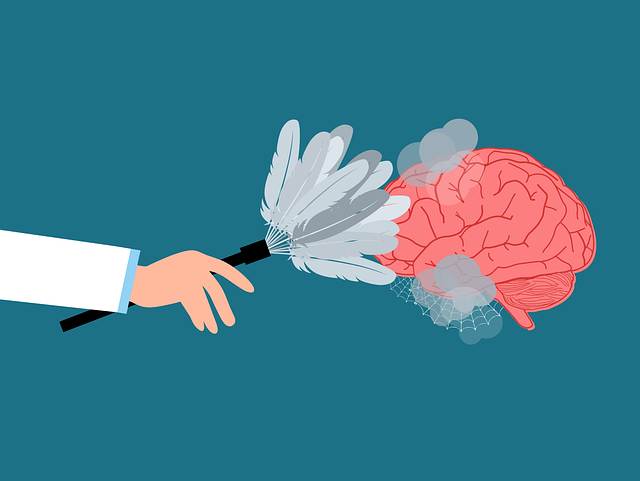Broomfield Couples Communication Issues Therapy (BCCIT) revolutionizes mental illness diagnosis by combining traditional patient history with structured dialogue, stress reduction techniques, and emotional wellness coaching. This multi-faceted approach, integrating modern practices like Mindfulness Meditation, improves diagnostic accuracy and fosters an open, supportive environment for couples facing communication problems. Patient feedback plays a crucial role in refining assessment methods and tailoring treatments to unique needs, while continuous education ensures therapists stay updated on best practices, enhancing outcomes in Broomfield's mental health landscape.
Mental illness diagnosis accuracy is a critical aspect of patient care, yet it remains a challenging field. This article delves into strategies aimed at enhancing diagnostic precision, focusing on understanding the complexities of mental health conditions, the impact of communication techniques like Broomfield Couples Communication, and innovative therapeutic approaches.
We explore the power of patient feedback integration, emphasizing its role in refining assessment processes. Additionally, continuous education and training are highlighted as essential foundations for achieving accurate diagnoses, especially in addressing issues related to Broomfield Couples Communication and therapy techniques.
- Understanding Mental Illness Diagnoses and Their Challenges
- The Role of Broomfield Couples Communication in Diagnosis
- Innovative Therapy Techniques for Accurate Assessment
- Integrating Patient Feedback to Improve Diagnostic Processes
- Continuous Education and Training: A Cornerstone for Accuracy
Understanding Mental Illness Diagnoses and Their Challenges

Mental illness diagnoses often involve complex and multifaceted challenges. Accurately identifying conditions like depression, anxiety disorders, or even more nuanced issues such as Broomfield couples communication problems requires a delicate balance between clinical expertise and patient self-reporting. Traditional methods rely heavily on patient history, symptoms, and standardized assessments, but these can be susceptible to human error or biased interpretations. The complexity of mental health lies in the fact that symptoms vary widely among individuals, even those facing similar issues. What may manifest as persistent sadness in one person could differ significantly from another’s experience of overwhelming anxiety.
Enhancing diagnosis accuracy demands a multi-faceted approach. Therapists and healthcare professionals must prioritize self-awareness exercises to better recognize subtle cues during counseling sessions. Techniques focused on emotional well-being promotion can help individuals articulate their experiences more effectively, providing richer data for assessment. Additionally, integrating self-esteem improvement strategies into therapy may encourage openness and honesty about personal struggles, further refining diagnostic accuracy. The ultimate goal is to foster an environment where patients feel comfortable discussing their innermost thoughts and feelings, ensuring that diagnoses are as comprehensive and accurate as possible, especially when addressing issues like Broomfield couples communication issues within a therapeutic setting.
The Role of Broomfield Couples Communication in Diagnosis

Broomfield Couples Communication Issues play a significant role in the accuracy and effectiveness of mental illness diagnoses. Effective communication between partners helps therapists gain deeper insights into individual and shared experiences, emotions, and behaviors. By facilitating open dialogue, Broomfield Couples Therapy can unearth subtle cues that may otherwise be overlooked during individual assessments, enhancing diagnostic precision. This collaborative approach not only improves the overall quality of care but also fosters a supportive environment for both partners to navigate mental health challenges together.
Integrating Stress Reduction Methods within Broomfield Couples Communication Issues Therapy has shown promising results in improving diagnostic accuracy. Mental Wellness Coaching Programs Development tailored for couples can equip them with effective communication strategies, stress management workshops, and coping mechanisms. These initiatives not only enhance the couple’s ability to articulate their experiences but also contribute to better mental wellness outcomes. Stress Management Workshops Organization focused on enhancing Broomfield Couples Communication can further reinforce these positive effects, ultimately supporting more accurate and timely diagnoses for those seeking help.
Innovative Therapy Techniques for Accurate Assessment

In recent years, efforts to enhance mental illness diagnosis accuracy have led to the integration of innovative therapy techniques. One such approach gaining traction is Broomfield Couples Communication Issues Therapy, which focuses on improving interpersonal dynamics and communication patterns among individuals facing mental health challenges. This form of therapy leverages structured dialogue and problem-solving strategies to unearth underlying emotional conflicts, thereby facilitating more precise assessments.
By combining traditional counseling methods with modern techniques like Mindfulness Meditation, therapists can help clients develop inner strength and foster healthier ways of processing emotions. Mental Health Policy Analysis and Advocacy also plays a crucial role in this context, as it influences healthcare systems to adopt evidence-based practices, ensuring that accurate diagnoses translate into effective treatment plans. These collaborative efforts are revolutionizing mental health care, making it more accessible and tailored to individual needs.
Integrating Patient Feedback to Improve Diagnostic Processes

In the realm of mental health care, patient feedback plays a pivotal role in enhancing diagnostic accuracy. By actively incorporating insights from individuals facing Broomfield Couples Communication Issues and similar challenges, healthcare providers can refine their assessment methods. This collaborative approach ensures that the unique experiences and perspectives of patients are integral to the diagnosis process. For instance, many seek therapy due to communication difficulties within relationships, which require a nuanced understanding of interpersonal dynamics.
Integrating patient feedback allows for the development of coping skills and emotional intelligence among healthcare providers. Through regular interactions with diverse patient populations, therapists can enhance their cultural competency training, addressing potential biases or gaps in knowledge. This improved understanding fosters more accurate diagnoses, especially when considering the impact of cultural factors on mental health expressions. As a result, patients like those navigating Broomfield Couples Communication Issues can receive tailored therapies that resonate with their experiences and foster more effective healing.
Continuous Education and Training: A Cornerstone for Accuracy

In an era where mental health concerns are increasingly recognized, continuous education and training for therapists play a pivotal role in enhancing diagnosis accuracy. The field of Broomfield Couples Communication Issues Therapy, like many other branches of mental health care, benefits immensely from regular updates on research findings, new therapeutic techniques, and best practices. These ongoing learning initiatives ensure that therapists stay abreast of the latest developments in their domain.
Well-designed Mental Health Education Programs not only equip professionals with knowledge but also boost their confidence in handling diverse client needs. By integrating advanced mood management strategies into their practice, therapists can provide more precise diagnoses and tailored treatment plans. This continuous education approach is crucial for improving outcomes and fostering healthier relationships between therapists and clients, ultimately enriching the overall mental health landscape, especially in areas like Broomfield where access to quality care is paramount.
Mental illness diagnosis accuracy can be significantly enhanced through a multifaceted approach. Integrating innovative therapy techniques, such as Broomfield Couples Communication, along with continuous education and training, patient feedback, and advanced assessment tools, ensures a more precise and effective diagnostic process. By embracing these strategies, healthcare professionals can better navigate the challenges associated with mental health diagnoses, ultimately fostering improved patient outcomes.














